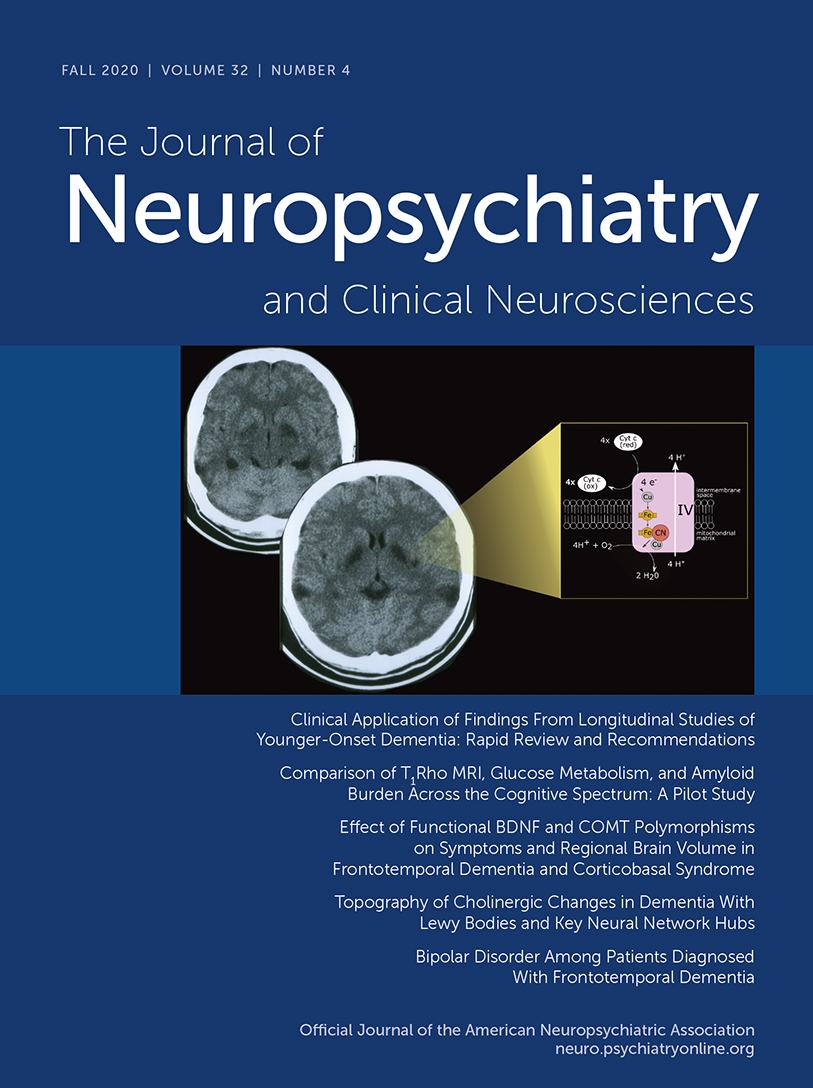Effect of Functional BDNF and COMT Polymorphisms on Symptoms and Regional Brain Volume in Frontotemporal Dementia and Corticobasal Syndrome
Abstract
Objective:
The authors examined the effects of two common functional polymorphisms—brain-derived neurotrophic factor (BDNF) Val66Met and catechol-O-methyltransferase (COMT) Val158Met—on cognitive, neuropsychiatric, and motor symptoms and MRI findings in persons with frontotemporal lobar degeneration (FTLD) syndromes.
Methods:
The BDNF Val66Met and COMT Val158Met polymorphisms were genotyped in 174 participants with FTLD syndromes, including behavioral variant frontotemporal dementia, primary progressive aphasia, and corticobasal syndrome. Gray matter volumes and scores on the Delis-Kaplan Executive Function System, Mattis Dementia Rating Scale, Wechsler Memory Scale, and Neuropsychiatric Inventory were compared between allele groups.
Results:
The BDNF Met allele at position 66 was associated with a decrease in depressive symptoms (F=9.50, df=1, 136, p=0.002). The COMT Val allele at position 158 was associated with impairment of executive function (F=6.14, df=1, 76, p=0.015) and decreased bilateral volume of the head of the caudate in patients with FTLD (uncorrected voxel-level threshold of p<0.001). Neither polymorphism had a significant effect on motor function.
Conclusions:
These findings suggest that common functional polymorphisms likely contribute to the phenotypic variability seen in patients with FTLD syndromes. This is the first study to implicate BDNF polymorphisms in depressive symptoms in FTLD. These results also support an association between COMT polymorphisms and degeneration patterns and cognition in FTLD.



